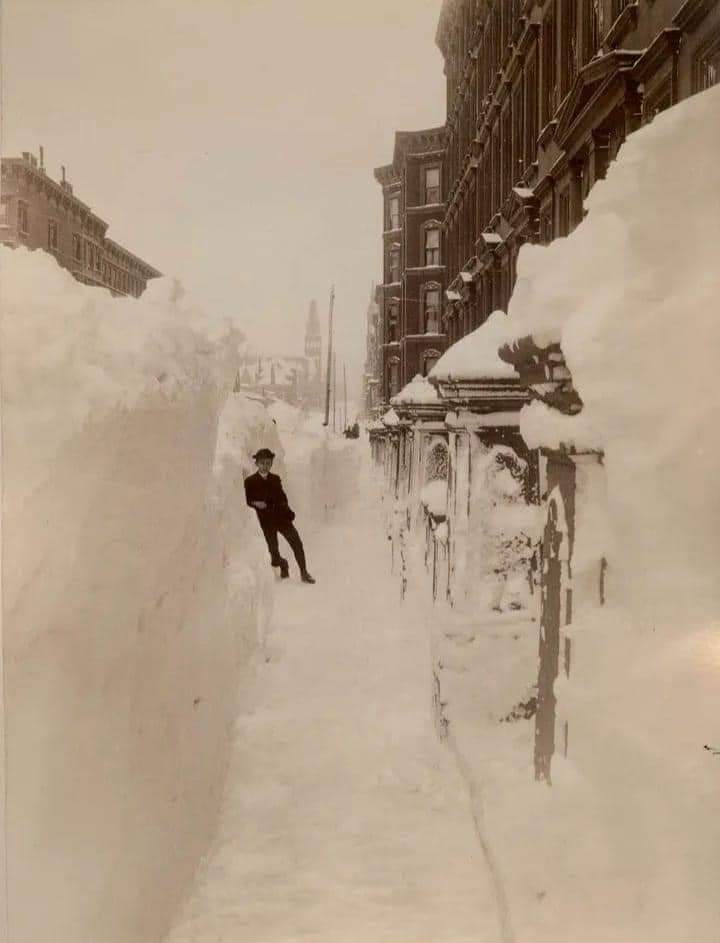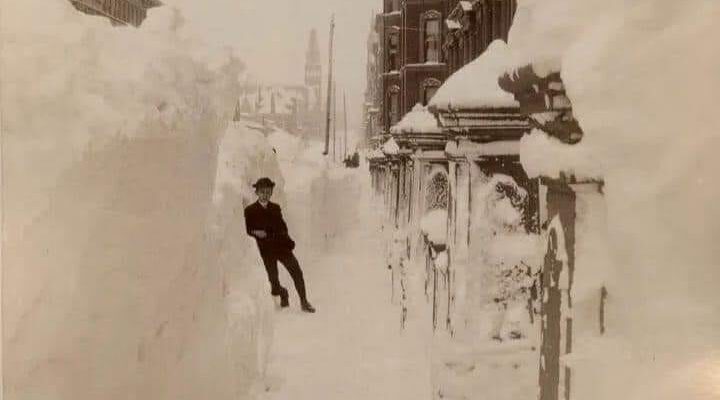
New York, 1888
On March 11, 1888, the “Great Blizzard”, or “The White Hurricane”, hit New York and the north-east of the United States, an exceptional storm that caused the death of 400 people as well as damages of 25 million dollars .
*In 1888 the “Great Blizzard” over New York
On March 11, 1888, the “Great Blizzard”, or “The White Hurricane”, hit New York and the north-east of the United States, an exceptional storm that caused the death of 400 people as well as damages of 25 million dollars . The snow reached a height of half a meter but the wind that blew in gusts of up to 85 miles per hour led to the formation of drifts up to 20 meters high, up to the second floors of New York buildings. The storm lasted for 36 hours, even sinking ships docked in New York Harbor and stranding 15,000 in elevated trains passing through New York. Wall Street was closed for three days. Among the people who were stuck at home during the terrible storm were the writer Mark Twain and the famous circus performer Barnum. When the Great Blizzard subsided, the entire East Coast, from Virginia to Maine, was paralyzed. The sparrows were found frozen on the telephone wires. Thousands of people were left without food and sufficient coal for days due to blocked roads and railways. It was precisely this emergency paralysis that pushed the construction of the subway in the Big Apple. It will not be the first nor the last climate catastrophe in the country – we remember it in 1940, in 1967, in 1978, the “storm of the century” on 12 and 13 March 1993, and again in 2010 and the unusual and violent snowfall of October last year on the East Coast – but, in addition to being one of the most intense, it was the first blizzard to be documented with images. The day before the storm had been calm, a bright sunny day without a cloud that had brought unseasonably warm weather to New York and the eastern part of the country, a gentle harbinger of spring. Instead, on March 12, heavy rain and wind arrived, the temperature dropped drastically and the snow arrived. Meteorologists will explain that the “Great Blizzard” was caused by the collision of two large low-pressure systems. A mass of Arctic air from Canada united from the West met a mass of warm air coming from the Gulf of Mexico, moving along the northeast coast. The two storms, combining just off the coast of Jersey, triggered a snowstorm worthy of the most furious of tropical hurricanes.


